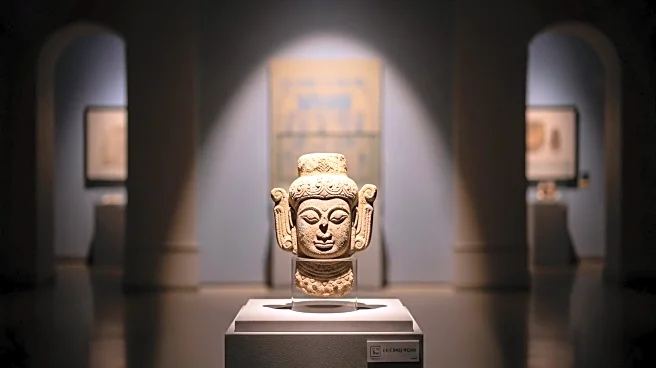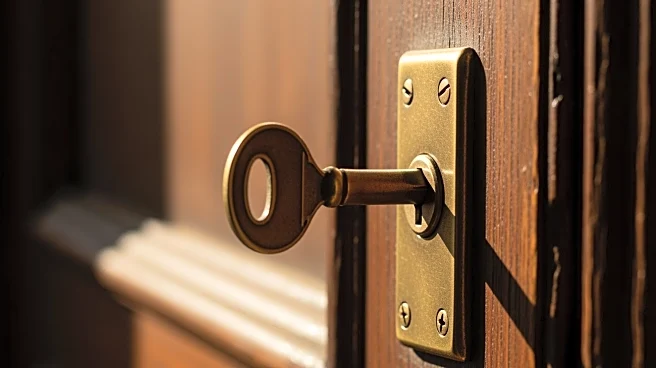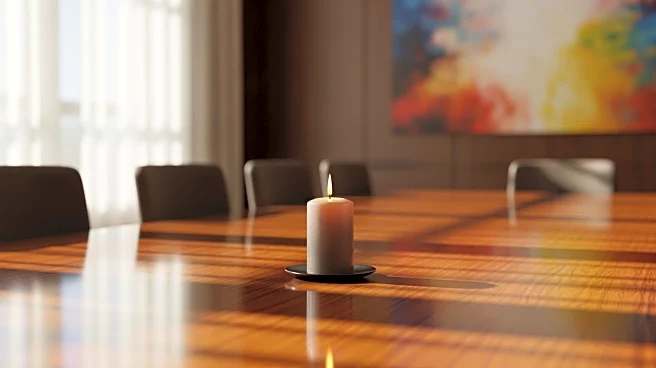What is the story about?
What's Happening?
A German woman has returned an ancient relic she stole over 50 years ago from Olympia, Greece. The artifact, a limestone column capital from the Leonidaion guesthouse dating back to the 4th century BC, was handed over to the University of Muenster, which facilitated its return to Greece. The Greek culture ministry praised the woman's decision, noting her 'sensitivity and courage.' This marks the third artifact returned by the University of Muenster in recent years, following the return of a twin-handled wine cup and a Roman-era marble head. Greece has been actively seeking the repatriation of antiquities, with a primary focus on the Parthenon Marbles held by the British Museum.
Why It's Important?
The return of the stolen relic underscores ongoing efforts by Greece to reclaim cultural artifacts taken from its historical sites. Such repatriation initiatives are significant as they aim to restore cultural heritage and rectify historical wrongs. The act of returning the relic also highlights the importance of international cooperation in preserving cultural history. The broader implications include potential diplomatic discussions and agreements between countries to facilitate the return of other significant artifacts, such as the Parthenon Marbles, which have been a point of contention between Greece and the UK.
What's Next?
Greece may continue to pursue diplomatic channels to negotiate the return of other artifacts, particularly the Parthenon Marbles. The successful return of the column capital could encourage other institutions and individuals to come forward with stolen artifacts. This development might also lead to increased pressure on museums and private collectors to reassess the provenance of their collections and consider repatriation where appropriate.
Beyond the Headlines
The return of the relic raises ethical questions about the ownership and stewardship of cultural artifacts. It challenges the practices of acquiring and displaying artifacts without considering their origins and the impact on the source communities. This event could spark broader discussions on the responsibilities of museums and collectors in preserving cultural heritage and the need for transparent and ethical practices in the art and antiquities market.
















